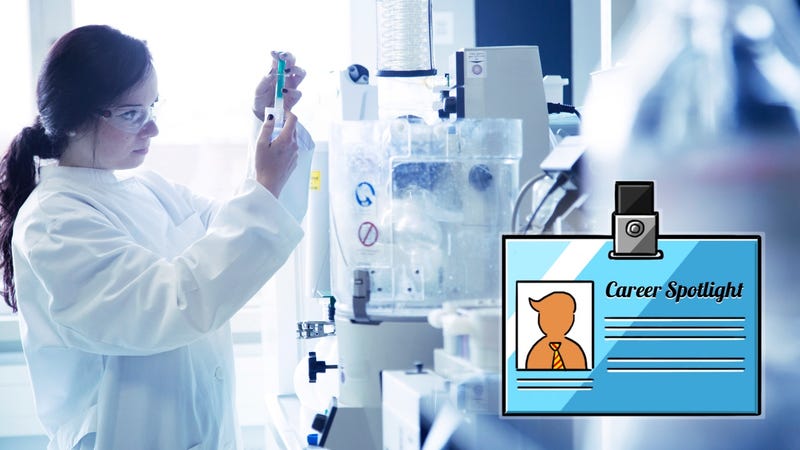
Some medical professionals spend their careers in a
lab, bettering the world through their research, while others focus on
being caring physicians towards their patients. Dr. Tina Cascone, MD,
PhD, does both.
Dr. Cascone is a cancer researcher whose nascent career already shows
great promise. She’s currently studying how immunotherapy can be used
to treat lung cancer—or rather, why cancer cells can become resistant to
such treatments. Her work drifted towards research after someone close
to her developed cancer while she was in medical school. She still works
directly with her patients, though, and considers her clinical
responsibilities part of the foundation of her career. We spoke with Dr.
Cascone to learn about her day to day work and how she got to where she
is today.First of all, tell us a bit about your current work and how long you’ve been at it.
I am a medical oncology fellow beginning my third and final year of training at the University of Texas MD Anderson Cancer Center. Much of my work this year will focus on my research, however, I will still have an opportunity to interact with my patients once a week. Since early 2015, I have been working on a research project designed to better understand how lung cancers become resistant to one particular type of treatment, immunotherapy. Immunotherapies work by allowing the patient’s immune system to better recognize cancer cells and destroy them. Unfortunately, less than a quarter of patients with lung cancer benefit from immunotherapy so resistance to these types of treatments is a major problem. My research is supported by Lung Cancer Alliance through a Young Investigator Award and the T32 National Institutes of Health training grant.What drove you to choose your career path? Why oncology and what drove you to focus on research?
Almost everyone knows or has known a person whose life has been adversely affected by cancer; I am no exception. When I was in medical school, someone very close to me developed cancer. This became the catalyst that drove me to learn as much as possible about the disease. I remember the fascination that came from learning about the genetic changes that take place during cancer development. Soon, I knew that I wanted to pursue medical oncology as my profession. During my last year of medical school, I became actively involved in research studies designed to identify the factors that determine how patients with some types of cancers in the chest respond to chemotherapies. It was at this time that I began to see that results from research have the potential to guide therapy and possibly impact patient lives.What kind of education and experience did you need to get where you are today?
After graduating from medical school in Naples, Italy, I entered the school’s oncology fellowship program. In 2007, I had a unique opportunity to fully immerse myself in studying non-small cell lung cancer at MD Anderson. At the same time I was able to earn my doctoral degree and by 2012, I had gained a strong research background. As my research experience was coming into focus, I sought opportunities to directly help patients as well. It was important for me to see my research in action by working with the people I set out to help. I entered the Internal Medicine Residency Program at Washington University School of Medicine in St. Louis, MO, and after completing that training, returned to MD Anderson for my Hematology-Oncology Fellowship in July 2014.What kinds of things do you do beyond what most people see? What do you actually spend the majority of your time doing?
Honestly, it’s possible that most of the patients that I see are unaware of the time I spend in the laboratory and some of my colleagues in the laboratory may not be aware of how much time I spend taking care of patients. Both roles are very important to me and are the foundation of what I do each week. During this third year of my fellowship, the majority of my time will be spent in research to complete my project, but I will continue weekly check-ins with my lung cancer patients as well.What misconceptions do people often have about your work and job?
Some people may believe that you cannot be both a caring physician and a good scientist because medicine and science require rigorous training and commitment. Pure scientists may not consider you a true researcher due to clinical responsibilities while master clinicians may think your bedside skills are not sharp because you are in the lab doing experiments. I think cancer research and patient care are very complementary and feed each other. The results of research that I do can have a direct impact on the patients that I see every day. That’s a wonderful feeling.Another potential misconception is that science is a solitary pursuit that is conducted by individuals isolated in their laboratories. This couldn’t be further from the truth. I collaborate with a number of people every day and most of our laboratories have an open concept where you can interact with your coworkers, exchange ideas and work as a team, which are all critical aspects in pushing the field forward.
No comments:
Post a Comment